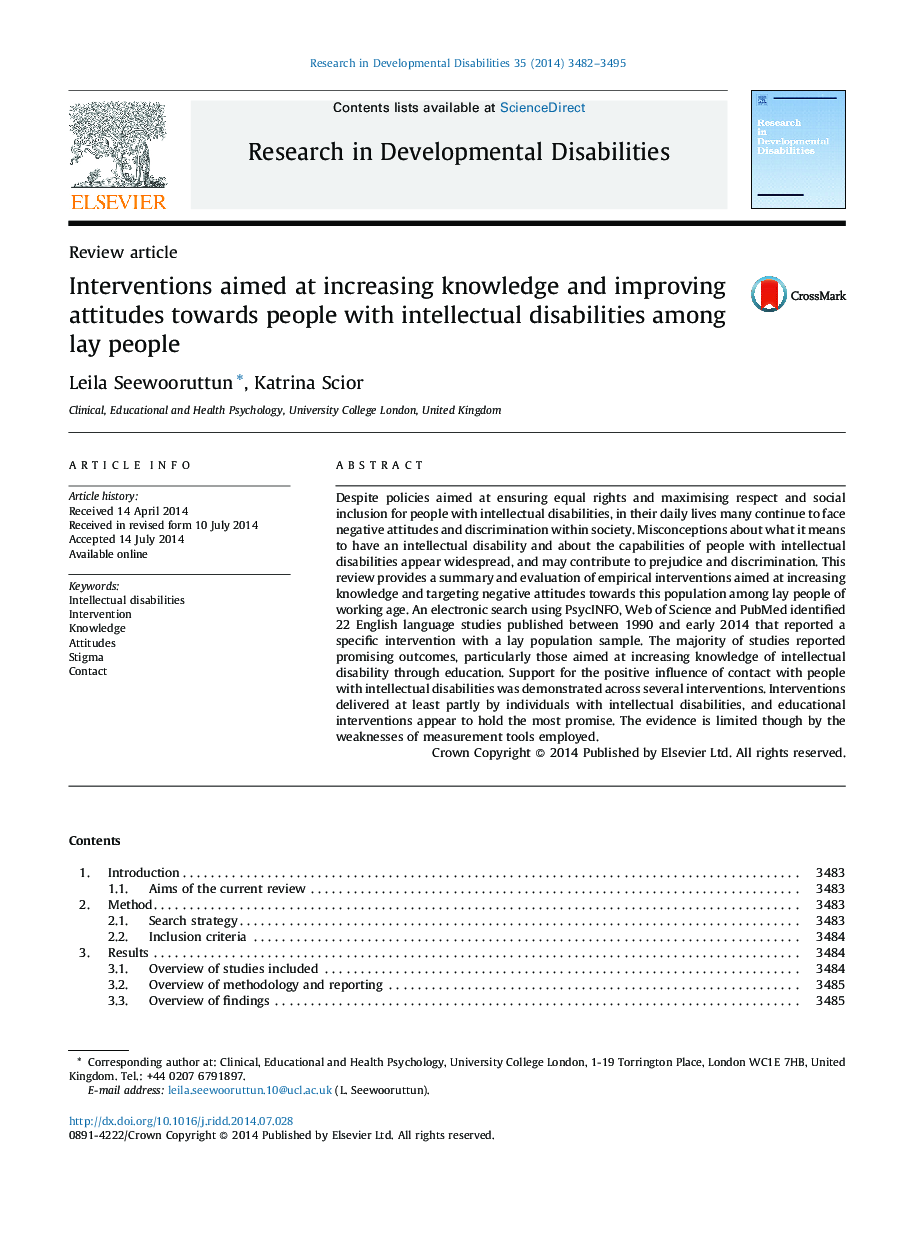| Article ID | Journal | Published Year | Pages | File Type |
|---|---|---|---|---|
| 10317456 | Research in Developmental Disabilities | 2014 | 14 Pages |
Abstract
Despite policies aimed at ensuring equal rights and maximising respect and social inclusion for people with intellectual disabilities, in their daily lives many continue to face negative attitudes and discrimination within society. Misconceptions about what it means to have an intellectual disability and about the capabilities of people with intellectual disabilities appear widespread, and may contribute to prejudice and discrimination. This review provides a summary and evaluation of empirical interventions aimed at increasing knowledge and targeting negative attitudes towards this population among lay people of working age. An electronic search using PsycINFO, Web of Science and PubMed identified 22 English language studies published between 1990 and early 2014 that reported a specific intervention with a lay population sample. The majority of studies reported promising outcomes, particularly those aimed at increasing knowledge of intellectual disability through education. Support for the positive influence of contact with people with intellectual disabilities was demonstrated across several interventions. Interventions delivered at least partly by individuals with intellectual disabilities, and educational interventions appear to hold the most promise. The evidence is limited though by the weaknesses of measurement tools employed.
Related Topics
Life Sciences
Neuroscience
Behavioral Neuroscience
Authors
Leila Seewooruttun, Katrina Scior,
